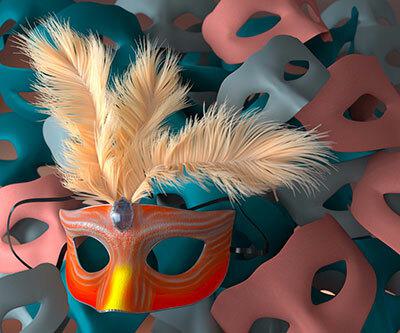Inner Reflection on Purim


Inner Reflection on Purim

Everyone loves Purim because it is such a festive and joyful holiday, with costumes and homantaschen, megillah readings and silly shpiels, gift giving and tzedakah. It is almost uncanny that a book as irreverent as the Megillah of Ester was included in our Bible. The name of God is not even in the story!
The characters in the Megillah are very extreme, which is what makes the story both funny and entertaining: The King is a fool who can be manipulated by anyone, Mordecai is perfectly good, Ester is a gorgeous heroine and Haman is completely evil. And let us not forget Vashti—a feminist before her time, because she refused to dance with only her crown on in front of the King’s friends and courtiers.
But what if there is a Haman inside of each of us? My colleague Rabbi Amy Eilberg cites Rebbe Levi Yitzhak of Berditchev (18th century Ukraine) as he addresses this very question, saying: “Not only are Jews commanded to wipe out Amalek (who is the equivalent of Haman), but each Jew has to wipe out that negative part that is called Amalek in his or her heart. So long as the descendants of Amalek are in the world—and each of us is also a small world, when the power of evil arises in each of us, Amalek is still in the world, then the reminder, ‘to wipe out Amalek’ calls out from the Torah.”
Rebbe Yitzhak is referencing our most cruel persecutor in the Torah, Amalek, who was said to purposefully attack our ancestors from the back, thus harming the most vulnerable—the aged, the children, the disabled. Torah teaches us to “remember to blot out” the name of Amalek. Haman is seen as another manifestation of Amalek, as are all villians in history intent on destroying the Jewish People. That is why we shout “Boo!” when we hear his name.
Purim, then, takes on new depth, where we are not only prodded to fight against evil forces in politics and society but we are also reminded to confront the capacity for cruelty that we each have inside of ourselves.
But don’t panic! A willingness to admit that we may each have a bit of Haman inside of us is important, so that we are on the lookout to keep our worst impulses at bay and under control. But remember that we certainly have a Mordecai and an Ester and Vashti inside of us too. Sometimes we are utterly wise and courageous. There are moments when we feel deeply faithful and religious and hopefully most of the time we overflow with goodness and kindness.
Purim comes this year at the end of February and the beginning of March. Like so many other Jewish holidays, you can find it at the next full moon. As our people have done for millennia, let us rejoice in the survival of our people against those who have sought to harm us and be inspired to recognize, nurture and celebrate our inner Esters and Mordecais.
Happy Purim 2018!